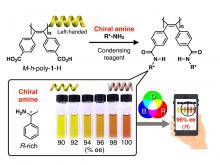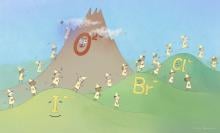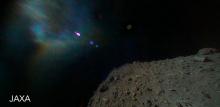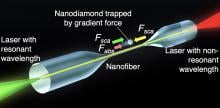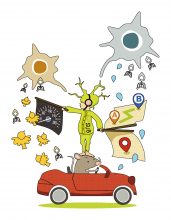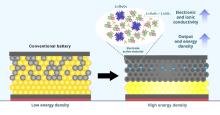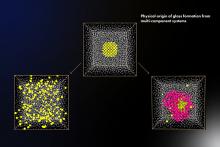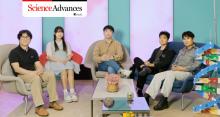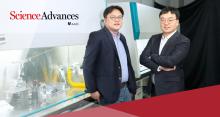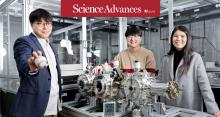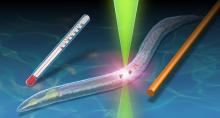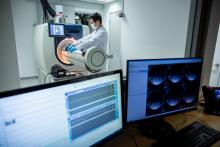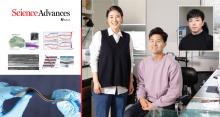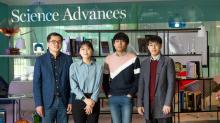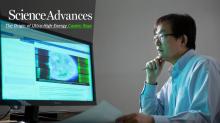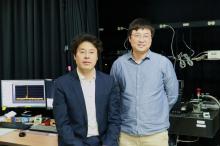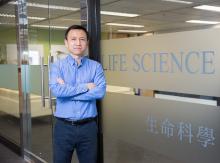Science Advances
News
28 Sep 2021
Researchers at Kanazawa University report in Science Advances a new method for distinguishing between enantiomers, molecules that are mirror images of each other. The procedure, relevant for the pharmaceutical industry, involves the chemical reaction of target enantiomers with color indicator compounds consisting of one-handed helical polymers, leading to solutions showing different colors in specific solvents between the enantiomers.
06 Aug 2021
Researchers from the Daegu Gyeongbuk Institute of Science and Technology have developed a faster and more reliable way to print flexible digital devices.
02 Jun 2021
Scientists have found a way to make hydrogen move faster through a solid material at cooler temperatures, paving the way for more sustainable and practical energy storage devices.
28 Apr 2021
Scientists have recreated the reaction by which carbon isotopes made their way into different organic compounds, challenging the notion that organic compounds, such as amino acids, were formed by isotopically enriched substrates. Their discovery suggests that the building blocks of life in meteorites were derived from widely available substrates in the early solar system.
26 Mar 2021
Scientists have developed a method to use lasers to control the movement of nanodiamonds with fluorescent centers.
10 Mar 2021
Researchers reveal the path of information received by the hippocampus. Using optogenetics during large-scale recordings of rat subiculum, they discovered that the subiculum distributes information from the hippocampus to 4 downstream regions of the brain. They observed that the theta and sharp-wave/ripples in the subiculum controlled information transmission with millisecond precision according to the target region. This provides the foundation for a comprehensive understanding of the hippocampal memory system.
18 Feb 2021
Lithium ion batteries use liquid electrolytes that have several drawbacks, which can be overcome by all-solid-state lithium secondary batteries (ASSBs). However, it is important to find efficient electrode materials for ASSBs. A research team from Japan has recently developed a novel electrode material for ASSBs by combining lithium sulfate and lithium ruthenate, which results in improved performance. The scientists hope that their novel approach will guide future research and the eventual commercialization of such high-capacity batteries.
14 Dec 2020
Scientists at The University of Tokyo use computer simulations to model the effects of elemental composition on the glass-forming ability of metallic mixtures, which may lead to tough, electroconductive glasses

11 Dec 2020
A joint research led by City University of Hong Kong (CityU) has built an ultralow-power consumption artificial visual system to mimic the human brain, which successfully performed data-intensive cognitive tasks. Their experiment results could provide a promising device system for the next generation of artificial intelligence (AI) applications.
20 Nov 2020
A research team, affiliated with the Korea Genomics Center (KOGIC) at UNIST has released data from the initial phase of the Korean Genome Project (Korea1K), including information describing 1,094 whole genomes, along with 79 quantitative clinical traits.
19 Nov 2020
A recent study, affiliated with South Korea's Ulsan National Institute of Science and Technology (UNIST) has unveiled a new technique that gives an enhanced hydrogen production yield by 5 times via the deposition of highly porous superaerophobichydrogels on a desired electrode surface.
19 Nov 2020
A research team, affiliated with South Korea's Ulsan National Institute of Science and Technology (UNIST) has discovered that when the rotational quantum states of non-polar molecules change under the influence of laser fields (non-resonant laser fields), so does their motion trajectories.
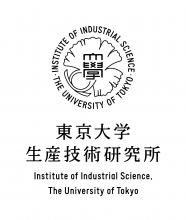
04 Nov 2020
The University of Tokyo introduced a system of gold nanorods that acts like a tiny light-driven motor, with its direction of motion is determined by the orientation of the motors. This work may lead to smaller and more precise nanomachines.
11 Sep 2020
Measuring the temperature of objects at a nanometer-scale has been a long challenge, especially in living biological samples, because of the lack of precise and reliable nanothermometers. An international team of researchers has realized a quantum technology to probe temperature on a nanometer-scale, and have observed a ‘fever’ in tiny nematode worms under pharmacological treatment. This strengthens the connection between quantum sensing and biology and ushers in novel thermal imaging technologies in biomedical research.
05 Aug 2020
The somatic nuclear protein kinase VRK-1 increases the worm’s lifespan through AMPK activation, and this mechanism can be applied to promoting human longevity, the study reveals.
27 May 2020
Scientists are unraveling the properties of electricity-conducting plastics so they can be used in future energy-harvesting devices.
13 May 2020
Diagnosis of Alzheimer's disease, the most common type of dementia, is not easy for its overlapping signs with normal ageing. A collaborative research by City University of Hong Kong (CityU) and Johns Hopkins University has developed a new non-invasive molecular imaging approach based on Magnetic Resonance Imaging (MRI) to dynamically measure glucose level changes in the brain lymphatic system. Their discovery may help in identifying Alzheimer's disease at early stages so that treatments can start as soon as possible.
23 Feb 2020
South Korea's Ulsan National Institute of Science and Technology (UNIST), in collaboration with POSTECH, have developed a new biomimetic ‘moving’ surface, inspired from the biomachanics of the pectoral fins of the Batoidea.
27 Aug 2019
A recent study, affiliated with South Korea's Ulsan National Institute of Science and Technology (UNIST) has reported a highly flexible Metal-Organic Framework (MOF) with the NPR property.
26 Aug 2019
A recent study, affiliated with South Korea's Ulsan National Institute of Science and Technology (UNIST) has shed new light on the mysterious origin of such ultra-high-energy cosmic rays (UHECRs) that has puzzled astrophysicists for decades.
20 May 2019
Researchers in Korea and colleauges have developed a polariton nano-laser operating at room temperature.
06 Mar 2019
A research team has discovered a new mechanism that could delay the degeneration of injured nerves, bringing new hope to the treatment of nerve damage and neurodegenerative diseases such as Parkinson and Amyotrophic Lateral Sclerosis (ALS).
07 Nov 2018
Researchers in Japan have found new good catalysts using unique "Heusler" alloys, following an interdisciplinary approach.
Events
Sorry, no events coming up for this topic.
Researchers
Sorry, no researchers coming up for this topic.
Giants in history
Sorry, no researchers coming up for this topic.


